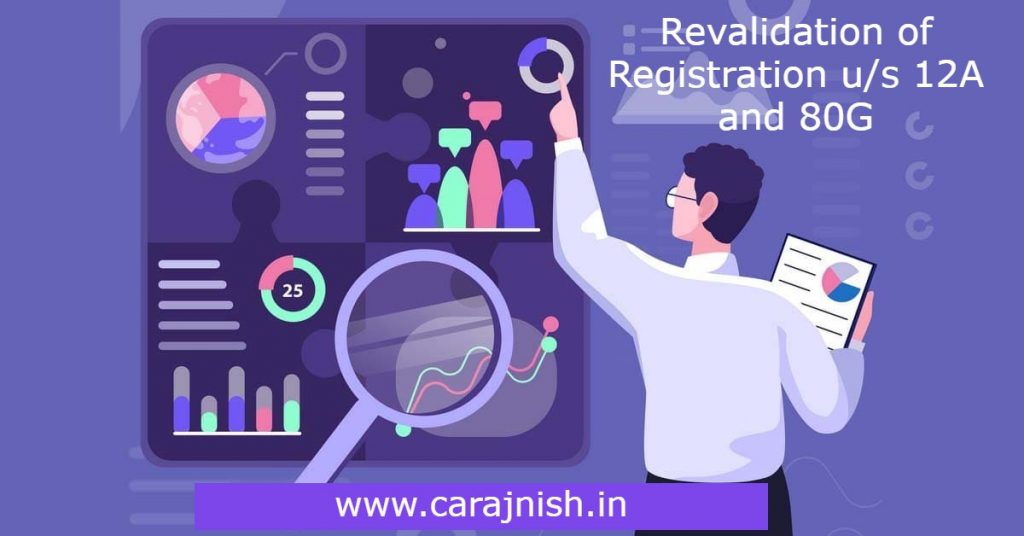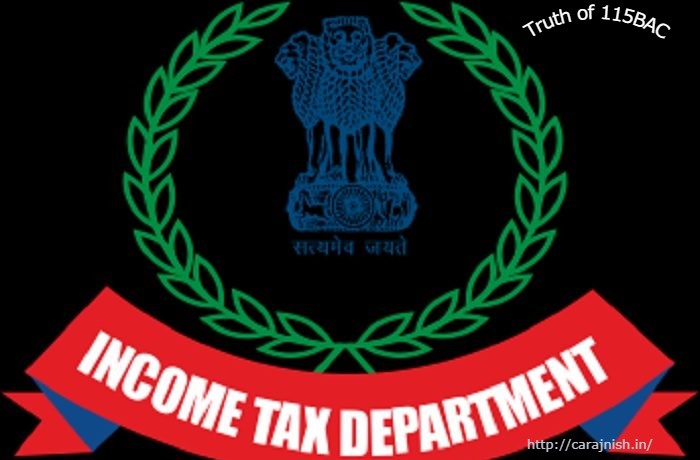There are certain tax exemptions and benefits available to Charitable Institutions in India. These exemptions and benefits are dealt in sections 12A/12AA and 80G of the Income Tax Act,1961. The Charitable institutions, in order to continue availing benefits under the above mentioned sections, had to revalidate their registrations under sections 12A/12AA and 80G i.e. the existing religious and charitable institutions had to re-apply to the Income Tax Authorities for revalidations of their existing registration.
The process of revalidation focuses on whether the charitable activities of the trust or institution or NGO are genuine or not. The revalidation became necessary because of changes made by way of amendment to the Finance Act, 2020 which mandated the Charitable institutions registered under sections 12A/12AA and 80G of the Income Tax Act, 1961 to reapply online for approval or registration by 31st August, 2020.
However, due to the COVID-19 situation, the CBDT (Central Board of Direct Taxes) deferred the start date to 1 October 2020, and the charitable institutions had to re-apply for registration by 31 December 2020.The Income-Tax (6th Amendment) Rules, 2021, came into force on 1 April 2021. Thus, the institutions and trusts with existing registrations under Section 12A/12AA or/and 80G should file the application for fresh registration within three months from 1 April 2021, i.e. before 30 June 2021, as per the Income-Tax (6th Amendment) Rules, 2021. However, the CBDT, through its press release dated 25th June, 2021, has extended the time limit for revalidation to 31st August, 2021.
On the 26 of March 2021, the CBDT notified the Income-Tax (6th Amendment) Rules, 2021 that states the procedure for fresh registration and the list of documents required for organizations registered under Section 12A/12AA/80G.
Section 12A/12AA of the Income Tax Act, 1961
Registration of trust or charitable institutions under Section 80G does not provide any direct benefits to them but will enable the donors who make contributions to such Trust or Charitable Institutions to avail deductions on their contributions from taxable income.
The purpose of registration under section 80G of charitable institutions is to incentivize their donors to make contributions.
Procedure of Revalidation Under Section 12A and 80G
In order to claim exemption, a charitable or religious trust or institution, including an NGO, should make an application to the Principal Commissioner of Income Tax or Commissioner of Income Tax online in Form 10A. The procedure of applying for revalidation/registration are mentioned below:
- Log in to the E-filing portal of the IT department.
- Go to the ‘Income Tax Forms’ under the e-File tab.
- Choose the Form Name as ‘Form 10A’ and select the relevant Assessment Year from the drop-down list.
- Choose the ‘Prepare and Submit Online’ option in the submission mode.
- Fill in all the details required in the form and attach the applicable attachments.
- Submit the form using EVC (Electronic Verification Code) or Digital Signatures as required during return filing.
The NGO’s applying for registration/revalidation as per the amended provisions of Section 80G are mandatorily required to provide the details of their Registration number with the DARPAN portal of Niti Aayog.
The registration under Section 12A and 80G are also mandatory when the organizations intend to receive or receive any grant or assistance from the Central Government or State Government.
Documents Required for Revalidation
- The following are the documents that are required to be submitted while applying for revalidation:
- Self-certified copy of the incorporation document of Societies/Trust
- Self-certified copy of the registration with the Registrar of Companies or Registrar of Societies or Registrar of Firms or Registrar of Public Trusts, as the case may be
- Self-certified copy of registration under the FCRA [Foreign Contribution (Regulation) Act], 2010, if the applicant is registered under the respective Act.
- Self-certified copy of the existing order of registration under section 12A/12AA/12AB, as the case may be
- Copies of the annual accounts for a period not exceeding three years immediately prior to the year in which the application is made, in the case of existing entities
- Where the income of the organization includes the profits and gains of business or where a business undertaking is held by the organization under the provisions of Section 11(4A), copies of the annual accounts and audit report under Section 44AB for three years immediately prior to the year in which the application is made
- Self-certified copy of the documents showing/evidencing modification or adoption of the objects
- Notes on the activities of the trust or institution
- The details of the DARPAN registration, if the organization is registered on the DARPAN portal
Issuance of Certificate of Revalidated Registration
- After 1 April 2021, upon filing the application for revalidation, an order granting the revalidated registration is passed within three months.
- The revalidated registration under section 12A and/or 80G is valid for a period of five years, after which it needs to be revalidated again. The re-application after five years has to be made at least six months before the expiry of the validity period of the registration.
- After receiving the revalidation application under 10A, the Principal Commissioner of Income Tax (PCIT) or Commissioner of Income Tax (CIT) will pass an order of granting approval in writing in Form No.10AC and issue a 16 digit Unique Registration Number (URN) to the applicants.
- The PCIT/ CIT may reject the application after giving an opportunity of being heard or demand further documents from the applicant if needed. The rejection order is also passed in Form No.10AC.
- The applicants must submit the application for renewal after the initial five years of registration in Form No.10AB.
- Upon receiving the application under Form No.10AB, the PCIT/CIT will make the order of registration or cancellation of registration or rejection in Form No.10AD.
- The PCIT/CIT is entitled to demand from the applicant further documents to satisfy the genuineness of the activities of the institution or trust and the compliance of the requirements under any other law for the time being in force by the institution or trust that are material to achieve its objectives.



